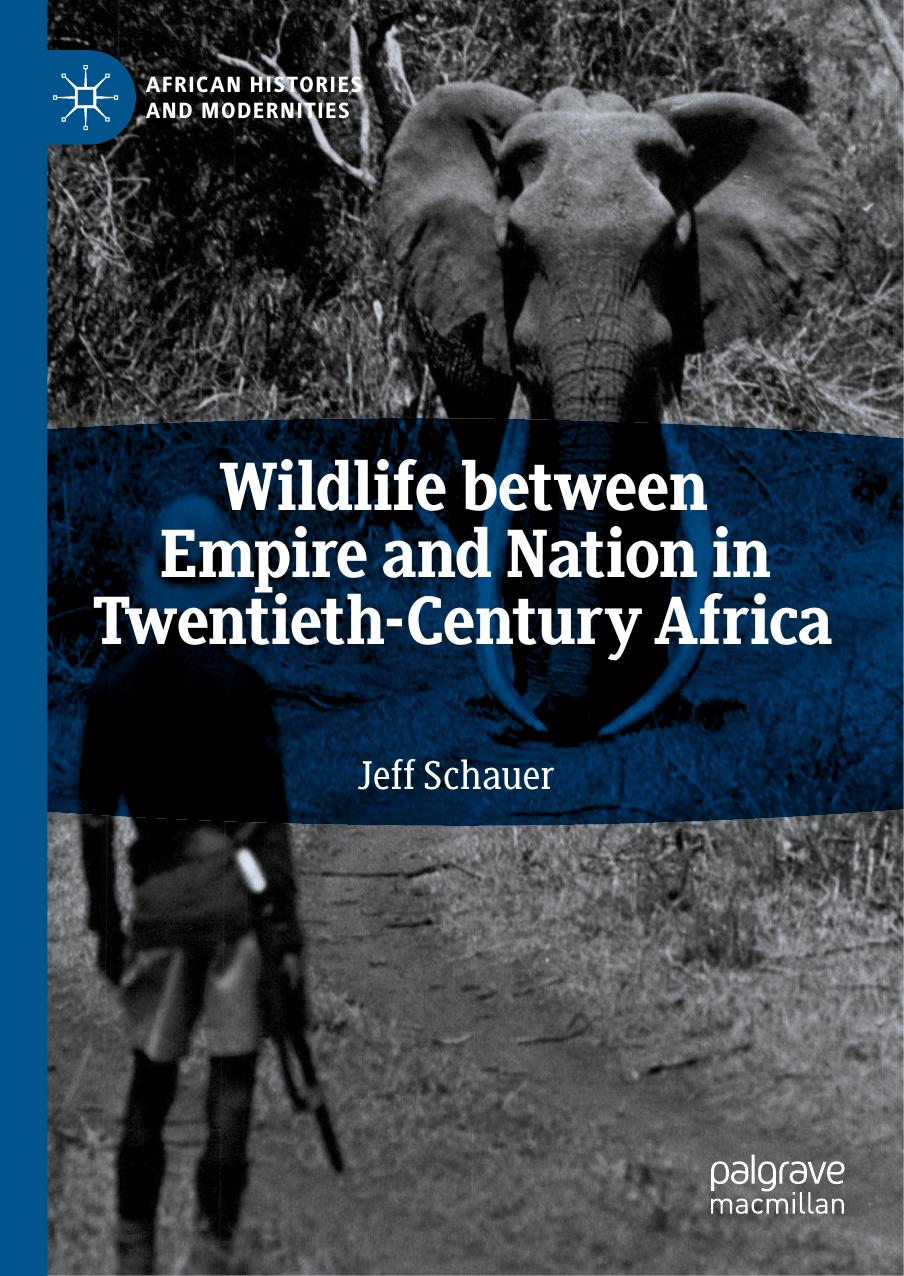Wildlife between Empire and Nation in Twentieth-Century Africa by Jeff Schauer

Author:Jeff Schauer
Language: eng
Format: epub, pdf
ISBN: 9783030028831
Publisher: Springer International Publishing
The College of African Wildlife Management
One reading of the new politics of wildlife that emerged amid decolonization is of an enterprise designed to strip African governments of control over a resource by internationalizing wildlife policy through international institutions, global funding regimes, and discourses around race and violence. But institutions like the CAWM in Tanzania suggest that there were other factors at work.123 Preservationists celebrated the College as proof of their clout in independent Africa. Nationalists cited the College as an example of new African statesâ industriousness. CAWM therefore bound together the conservation orderâs constituents, representing the aspirations of wildlife managers, political nationalists, and global philanthropists, while reconciling African governmentsâ demands for continued decolonization after independence with conservationistsâ assertion that wildlife represented a human trust that transcended national boundaries. The College was an institutional answer to the threat of poaching, the absence of expertise, and official indifference. But it was also an institution capable of addressing the commitments of new nations to strengthening their sovereignty.
The College was shaped by many factors, including racially tinged fears about the future of African wildlife, and the proliferation of global conservation organizations. Furthermore, the incomplete nature of decolonization in Africa and the experience of neo-colonialism ensured that African governments pursued policies designed to consolidate national control in economy, government, and society, and sometimes used these concerns to distract attention from their own stateâs practices. Fears of encroachment by former colonial powers and anxieties about becoming the site of proxy wars between global superpowers meant that new states and their leadership were particularly concerned to staff state institutions with loyalists. Thus, âAfricanizationâ became a core feature of decolonization: the replacement of European and expatriate staff in the public and private sector with African citizens.
Originally a British concession to nationalists, responsibility for Africanization shifted to new governments after independence.124 The pace of Africanization was defined by state ideology, availability of local expertise, and by the extent to which expatriatesâ continued presence compromised the integrity of vital institutions. The creation of CAWM coincided with a renewed dedication of the Tanzanian government to the Africanization of its civil service, part of a wider political campaign that involved curbing freehold title. The work of an Africanization Commission left âexpatriate and business confidenceâ¦shaken.â125 But if Africanization worried some who stood to lose status and influence, it created opportunities in the conservation realm.
CAWMâs foundation was a product of structure and contingency alike. Bruce Kinloch, a deputy to Ugandan Warden Charles Pitman, and later warden in his own right, claimed the College as his brainchild. In 1960, Kinloch became the head of Tanzaniaâs Game Department. In 1961 he evoked British Prime Minister Harold Macmillanâs âwinds of changeâ speech to identify a second sea change on the horizon: âa wind of urgent enquiry and investigationâ to blow away the âmists of misconception to reveal the vital role that the great game animals can play in the development of this continent and the advancement of its peoples.â126 Kinloch argued that the complex environment facing Africaâs
Download
Wildlife between Empire and Nation in Twentieth-Century Africa by Jeff Schauer.pdf
This site does not store any files on its server. We only index and link to content provided by other sites. Please contact the content providers to delete copyright contents if any and email us, we'll remove relevant links or contents immediately.
| Africa | Americas |
| Arctic & Antarctica | Asia |
| Australia & Oceania | Europe |
| Middle East | Russia |
| United States | World |
| Ancient Civilizations | Military |
| Historical Study & Educational Resources |
The Bomber Mafia by Malcolm Gladwell(1180)
Submerged Prehistory by Benjamin Jonathan; & Clive Bonsall & Catriona Pickard & Anders Fischer(1162)
Facing the Mountain by Daniel James Brown(1131)
The Dawn of Everything by David Graeber & David Wengrow(1103)
The Way of Fire and Ice: The Living Tradition of Norse Paganism by Ryan Smith(1032)
Wandering in Strange Lands by Morgan Jerkins(1014)
Driving While Brown: Sheriff Joe Arpaio Versus the Latino Resistance by Terry Greene Sterling & Jude Joffe-Block(1002)
Tip Top by Bill James(1002)
Evil Geniuses: The Unmaking of America: A Recent History by Kurt Andersen(999)
Red Roulette : An Insider's Story of Wealth, Power, Corruption, and Vengeance in Today's China (9781982156176) by Shum Desmond(997)
F*cking History by The Captain(966)
It Was All a Lie by Stuart Stevens;(940)
White House Inc. by Dan Alexander(904)
Evil Geniuses by Kurt Andersen(901)
Treasure Islands: Tax Havens and the Men who Stole the World by Nicholas Shaxson(879)
American Dreams by Unknown(857)
American Kompromat by Craig Unger(847)
The Fifteen Biggest Lies about the Economy: And Everything Else the Right Doesn't Want You to Know about Taxes, Jobs, and Corporate America by Joshua Holland(816)
The First Conspiracy by Brad Meltzer & Josh Mensch(811)
